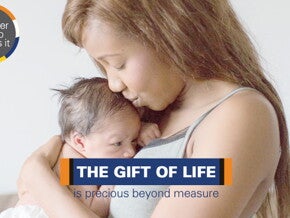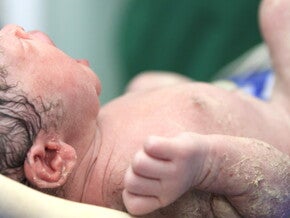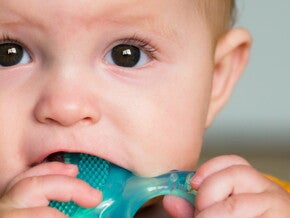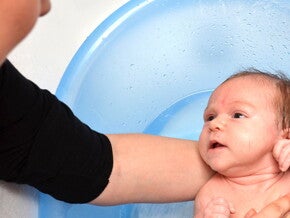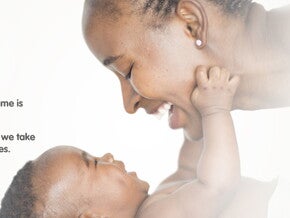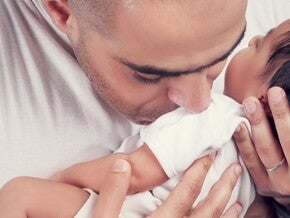
Emotional adjustments
Your feelings about the birth
Your feelings about the birth can range vastly, from euphoria to depression, from fulfilment to a sense of loss or indifference, from disappointment to extreme gratitude. You will relive the birth many times and may feel disappointment if, in your eyes, any factors were a failure.
These feelings should not take too long to deal with, but if they persist, seek professional counselling.
Baby blues
Your hormone levels have changed significantly. You may become tearful towards the third day after the birth which coincides with your milk ‘coming in’. These ‘baby blues’ usually pass fairly quickly.
Your body
Your size and shape may have altered and will require effort to improve. Regaining confidence about your body image may take a good few months.
Sufficient rest, a well-balanced diet, regular exercise and taking time and care with your appearance will help to restore your self-esteem.
Fatigue
A lack of rest may result in extreme fatigue and exhaustion, which often causes increased or ongoing depression. Ask friends and family to help with the basic necessities, such as shopping and cooking. Initially, too many visitors may also be exhausting.
New fatherhood
Fathers react to the birth of the first baby in different ways. A father needs to adjust and get to know his baby.
His involvement in the care of the baby varies significantly. He may enjoy sharing or choose not to participate actively. Partners must respect each other’s choices.
It is helpful if the father is prepared for some of the changes that take place after the birth.
- Communication is vital in trying to resolve any conflict.

Socialising
When the novelty of your new baby wears off, and you feel isolated and lonely, find out about new parent support groups in your area. Talking to others with the same feelings and difficulties often helps to create perspective and arrive at a creative solution.
Include the baby in your and your partner’s life. Within reason, do not change your habits too much.
Your relationship
Pregnancy and new parenthood brings about enormous changes.
Statistically the divorce rate is alarmingly high after the birth of the first child. Special attention should therefore be given to looking after your needs as a couple.

The most valuable asset you can give your children is a loving, secure and stable environment.
Your baby’s needs
It may take weeks, sometimes months, to gain confidence in understanding your baby’s needs. Follow your own judgement and trust your instincts. Life with a new baby is an adventure in which you all learn together.
Consult a caregiver, childbirth educator or community health nurses if you have any questions about your baby’s needs.
Reality
Parenthood is often idealised and you may be unrealistic in your expectations. You may, at times, feel angry or resentful toward the baby, particularly if he cries a lot.
- Share your feelings with your partner, a friend or your doctor. Problems seem less important when shared.
- If your feelings seem extreme, seek professional help.
Postnatal depression
Depression may start at any time within the first year after the birth of your baby and can last months, even years.
Warning signs
- Feelings of helplessness, dependency, lack of confidence, poor self-esteem, fatigue, tearfulness, extreme sensitivity, anxiety and fears for the safety of the baby and yourself, lethargy, disinterest and loss of libido.
- In isolation, these feelings could be normal, but when experienced simultaneously, could indicate postnatal depression.
Possible causes
A combination of several factors may be the cause.
- Changes in hormonal balance, the birth experience, a history of depression, a difficult baby, health problems, marital relationship, interfering family members or financial problems.
- Lack of experience and the constant demands made by the baby can aggravate the problem, as well as heighten exhaustion in the early weeks after the birth.
Treatment
- You will need physical assistance, emotional support and professional counselling to work through your feelings and experiences.
- You may be given medication.
- You will need rest and extra help at home.
Your needs, and caring for yourself
With caring for your baby, your partner and your household, there is little time left for yourself.
- You will be more capable of nurturing your family, if you look after yourself.
- Acknowledging your own limitations is essential for successful parenthood. Ensure that you eat good, balanced meals.
- Try to get adequate rest.
- Exercise at least three times a week. Postnatal exercise classes provide the benefit of exercise and support from other women experiencing similar life changes.
Consult a caregiver or childbirth educator.


